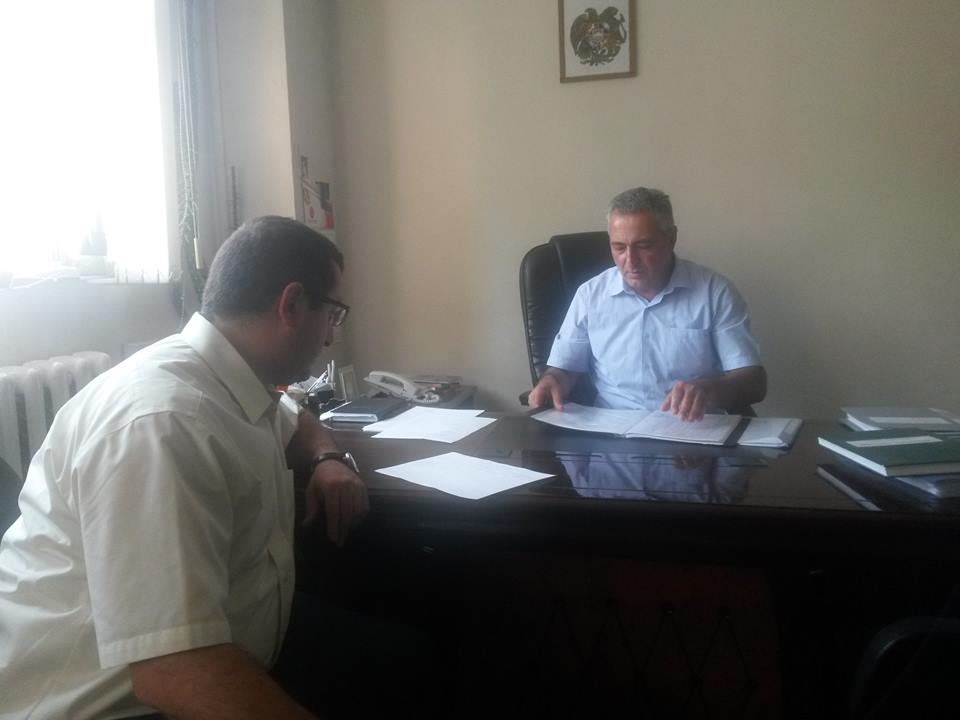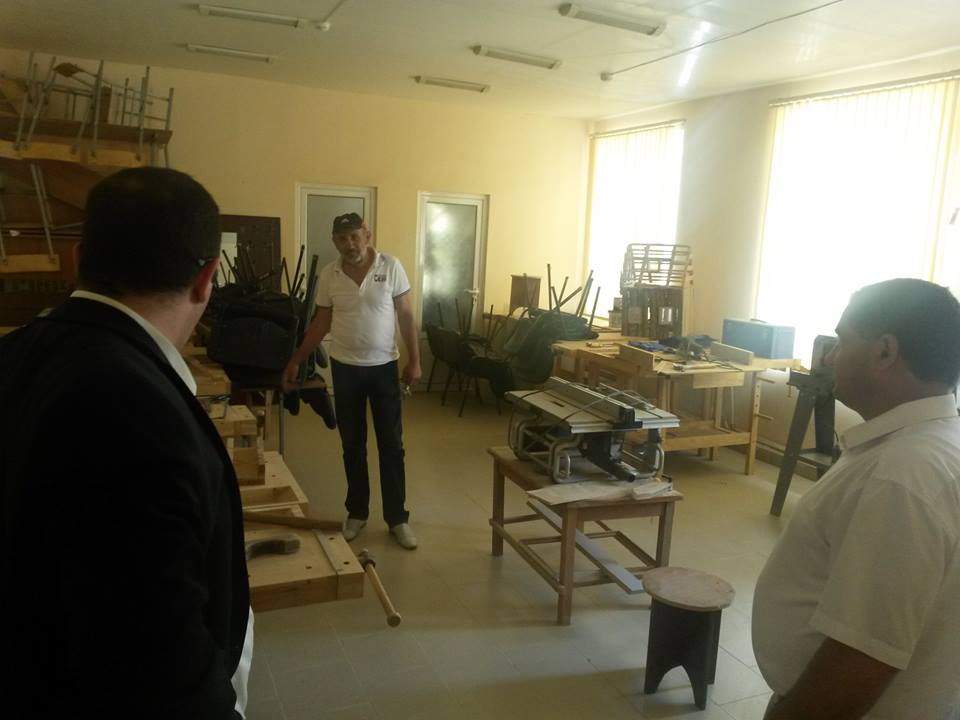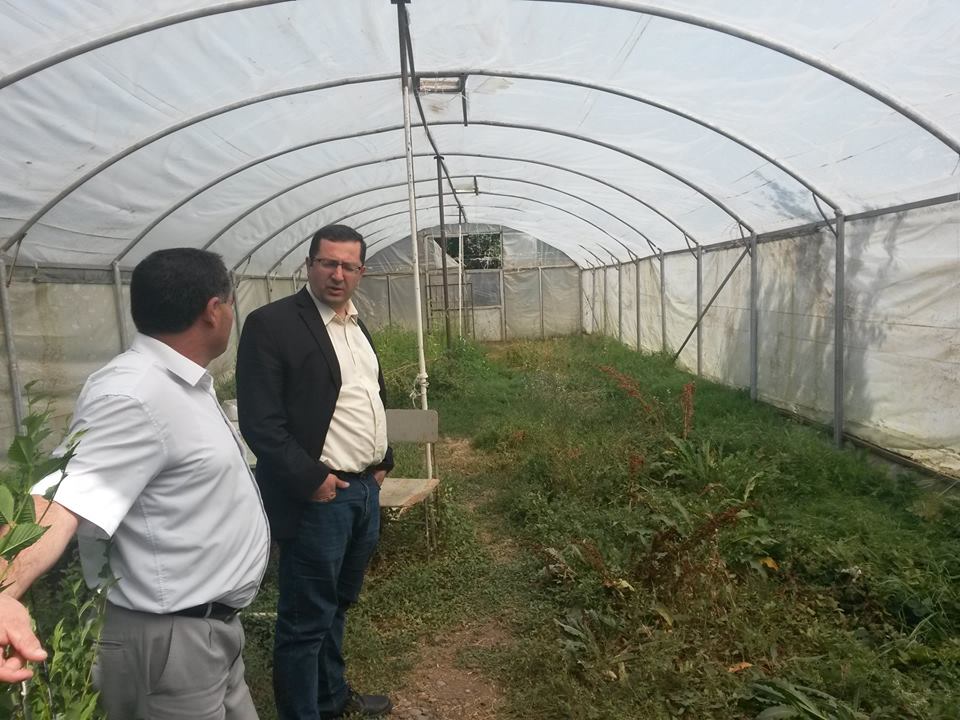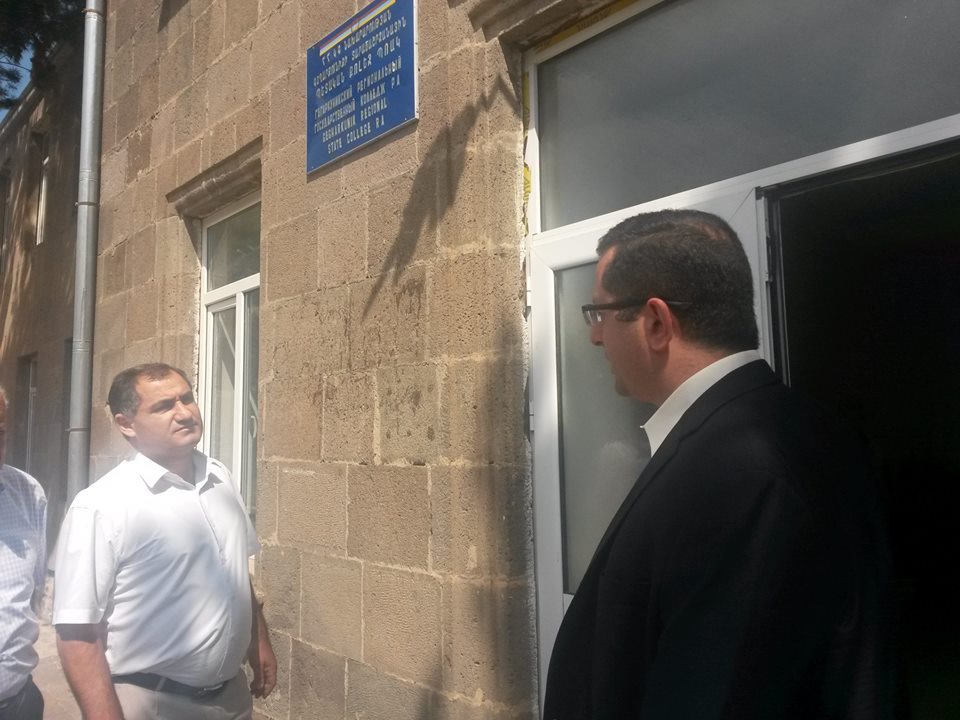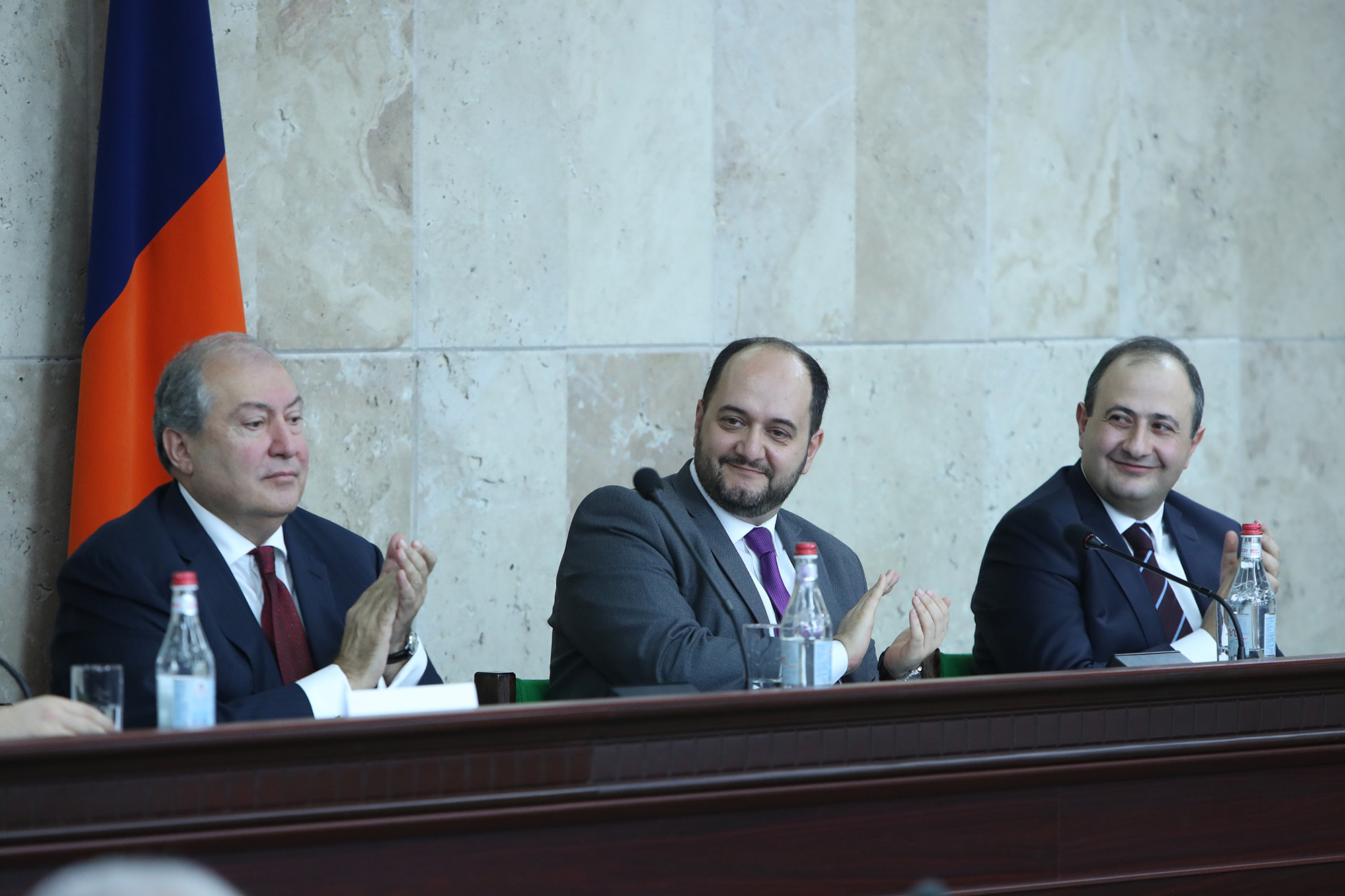Deputy Minister H. Hovhannisyan Summed up the Results of his Visit to Provinces
2018-08-23
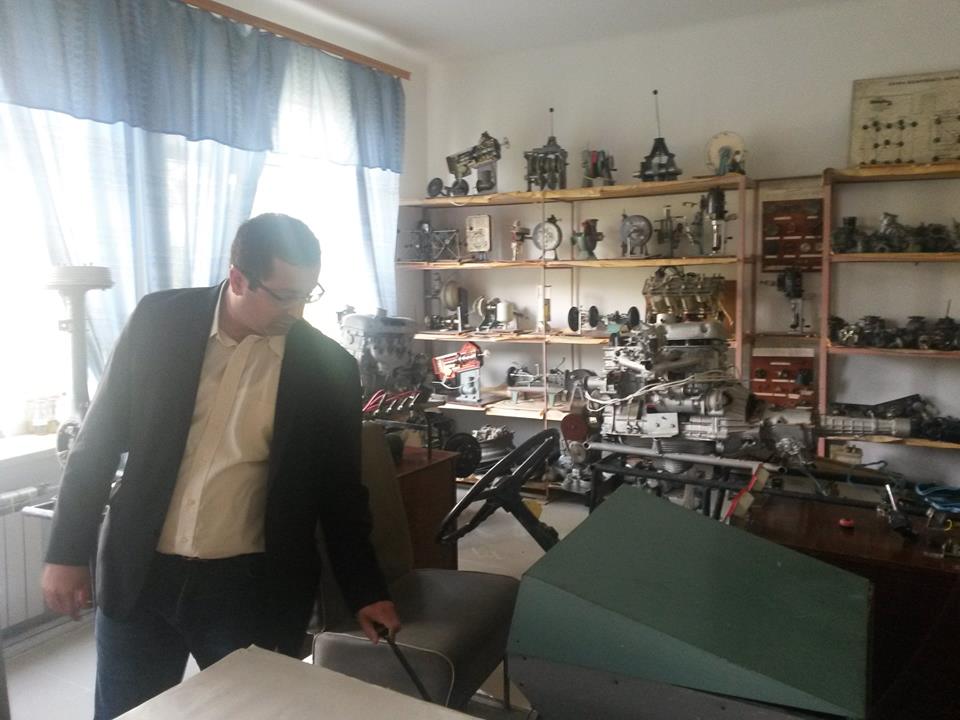
Hovhannes Hovhannisyan, RA Deputy Minister of Education and Science, made a working visit to 17 primary and secondary vocational education institutions in Syunik, Ararat, Vayots Dzor and Gegharkunik provinces. The purpose of the visit was to get acquainted with the existing problems in the educational institutions, the work done before the beginning of the academic year 2018-19, as well as to discuss issues requiring operative solutions.
Summing up the results of the three-day visit, the Deputy Minister noted that in recent years in many educational institutions due to the supporting programs of such donor organizations as the EU budgetary assistance, “Save the Children”, “World Vision”, Economic Cooperation of Germany “GIZ”, the “Anushavan Abrahamyan” Charity Foundation, etc., a great deal of work has been done, while, on the other hand, there are institutions the conditions are rather inconsolable.
According to Hovhannes Hovhannisyan, they are mostly medical colleges. There are also local features, such as Kajaran College in Syunik province is in good conditions, but there is a problem of workers because Kajaran Copper and Molybdenum Combine provides professionals with high salaries and, consequently, specialists are not interested in college work with low salaries.
As a common problem, the Deputy Minister of Education and Science underlines the increase in the efficiency of Governing Councils. H. Hovhannisyan notes, "Governing boards usually include employers, very often they are not active in college life and do not participate in the development of the institution and the learning process. Meanwhile, the meaning of involvement of employers is that they organize practice in their companies for the students. There is another concerning issue which is immediately noticeable in all institutions. The success of the educational institution is also conditioned by the Principal's initiative. If the principal is active, has a vision, a strategy for the development of the college or educational institution, the result is typically positive.”
According to the Deputy Minister, it is important for the development of VET system to create a business opportunity that will provide colleges with extra-budgetary funds and stimulate development. VET institutions have the necessary infrastructure and they need to create an appropriate environment and legal framework for their intended use. Another promising development model is the introduction of a dual education system in VET institutions that is a work-based education.
As for the admission, the Deputy Minister said, although this year the seats provided by the Government have decreased, there is a problem of replenishment of available places even in the regions. There is also a need to create a new labor market demand in the selection of professions.
Summing up the results of the visit, the Deputy Minister of Education and Science notes that the visit was fruitful and the recorded problems should be reflected in the policy of this field.

